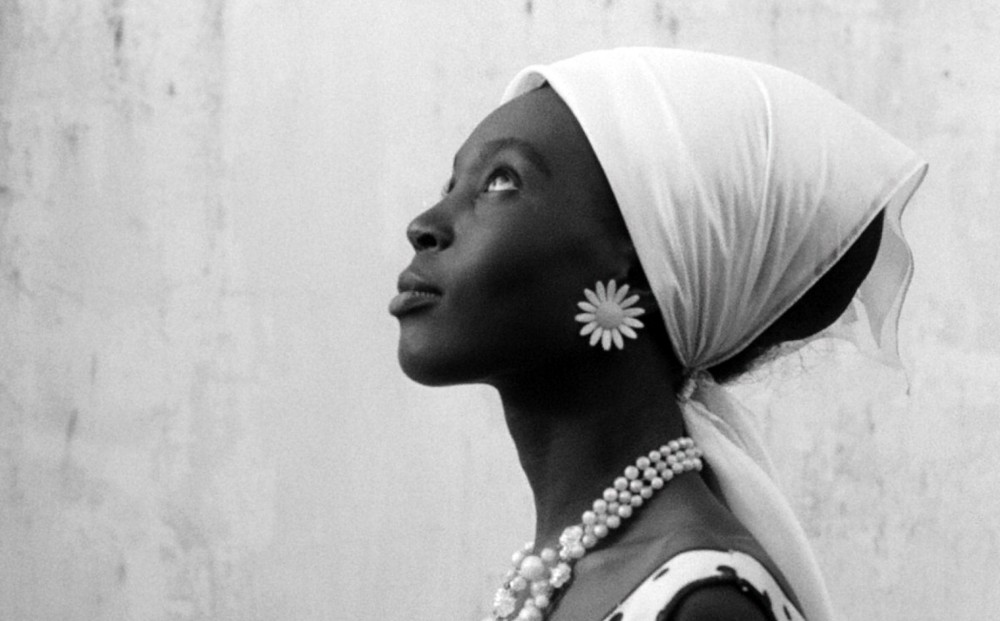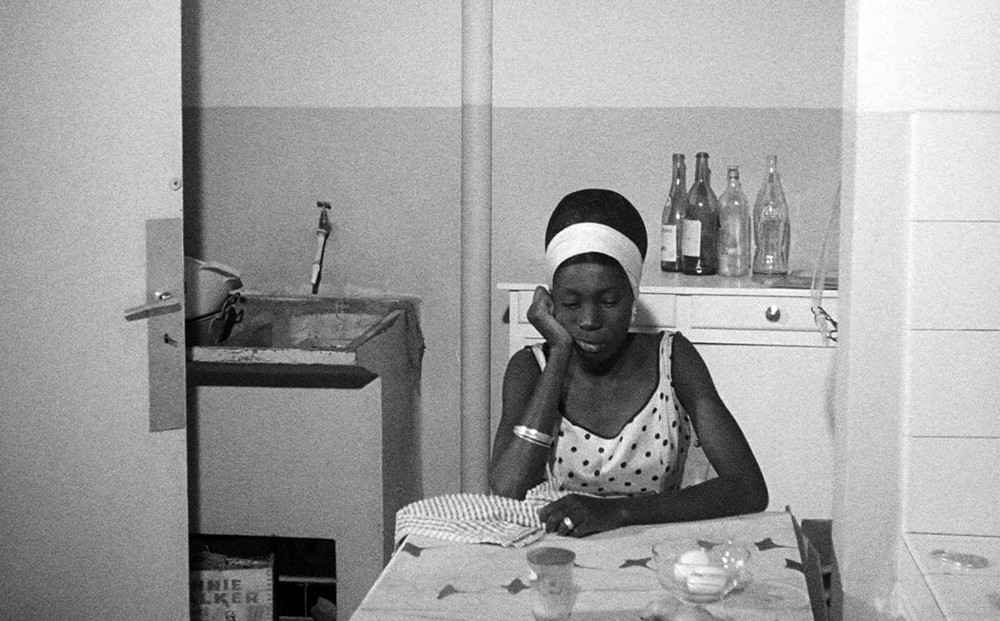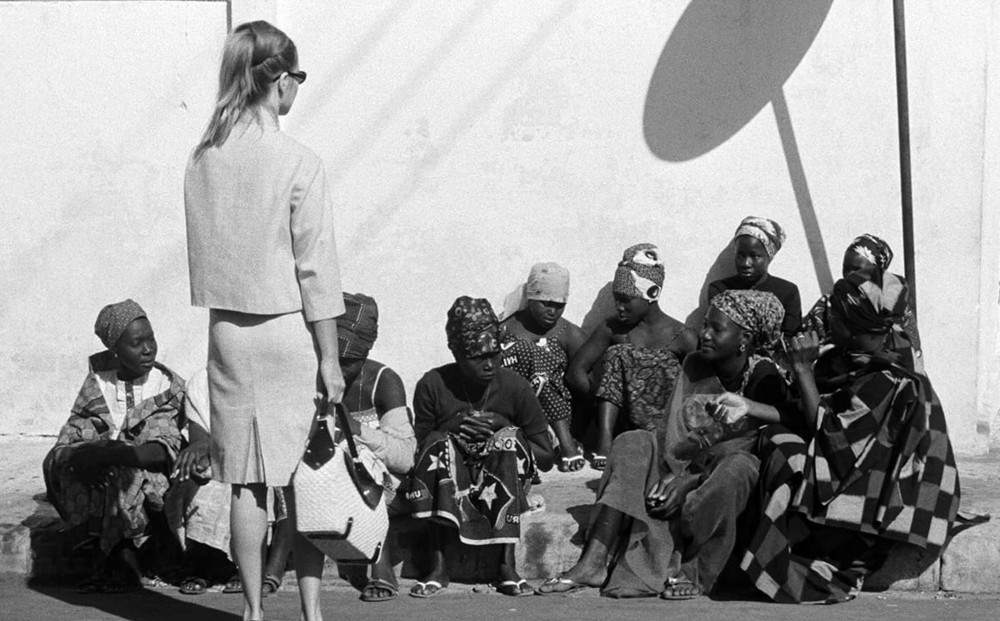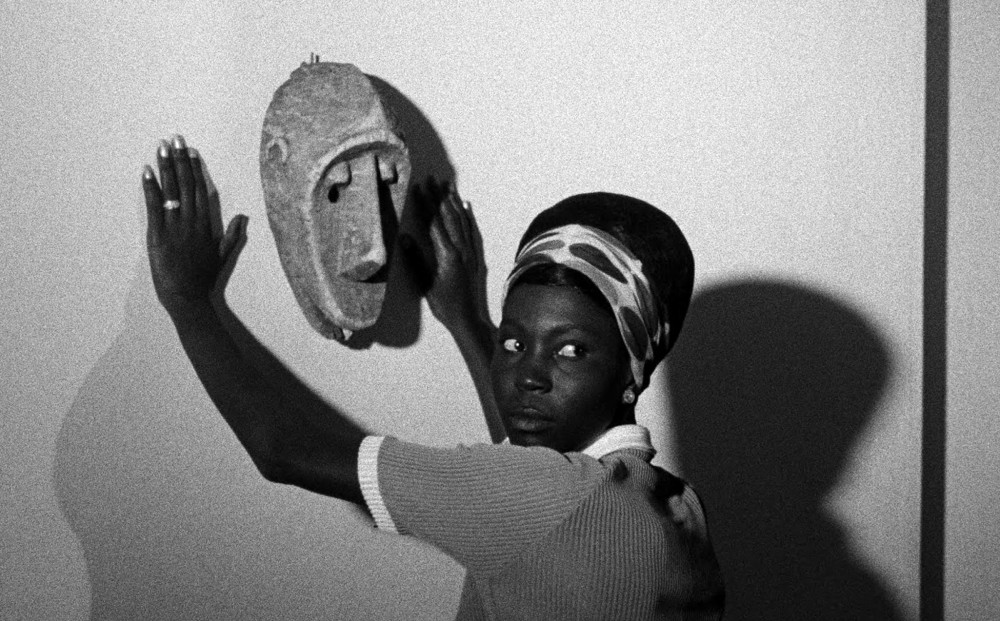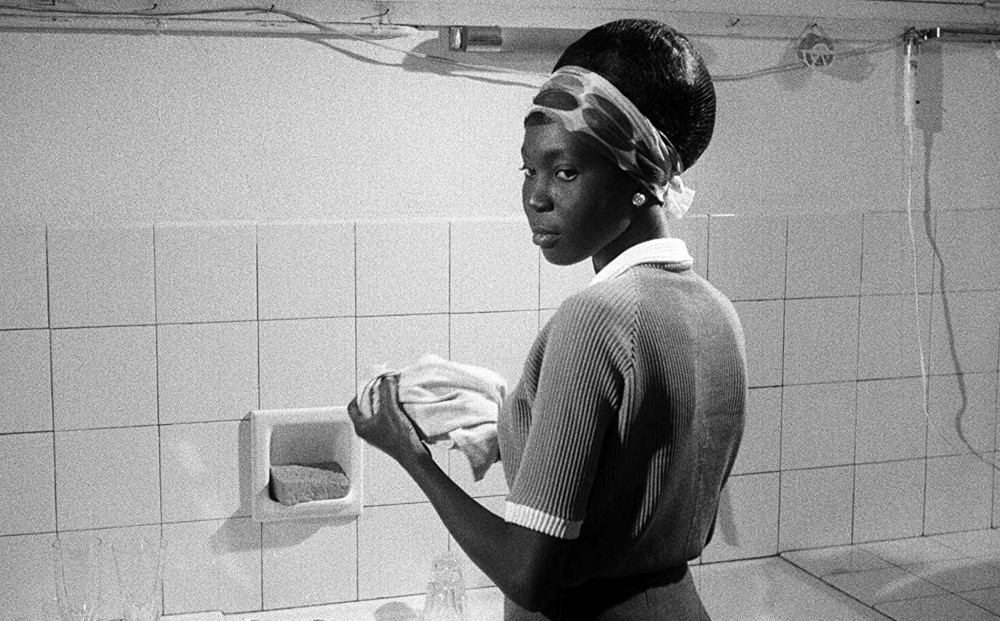BLACK GIRL
12:30 5:10
Monday, June 3
(1966, Ousmane Sembène) La Noire de… Mbissine Thérèse Diop’s Diouana finds her pleasant babysitting chores for a French family in Dakar topped by an invitation to accompany them back to France; but once there, she finds she’s just “the black girl.” Based on an actual event, Sembène’s first feature combines the semi-doc technique of neo-realism with the simple, freewheeling style of the early New Wave in an unsparing attack on neo-colonial exploitation that put African cinema on the map. With Sembène himself as a schoolteacher. In French and Wolof, with English subtitles. DCP restoration. Approx. 59 min.
Restored by Cineteca di Bologna/ L’Immagine Ritrovata laboratory, in association with the Sembène Estate, Institut National de l’Audiovisuel, INA, Eclair laboratories and the Centre National de Cinématographie. Restoration funded by The Film Foundation’s World Cinema Project.
Reviews
“Remains a remarkably economical portrait of colonial displacement.”
– J. Hoberman
“This elegantly stark dramatization of postcolonial pain was the first feature made in Africa by a sub-Saharan African to attract international notice.”
– Ashley Clarke
“There are few endings in all of cinema as powerful and rich as this – brimming with tragic wisdom and latent meaning, with finality and promise, with humor and pain.”
– Jonathan Rosenbaum

